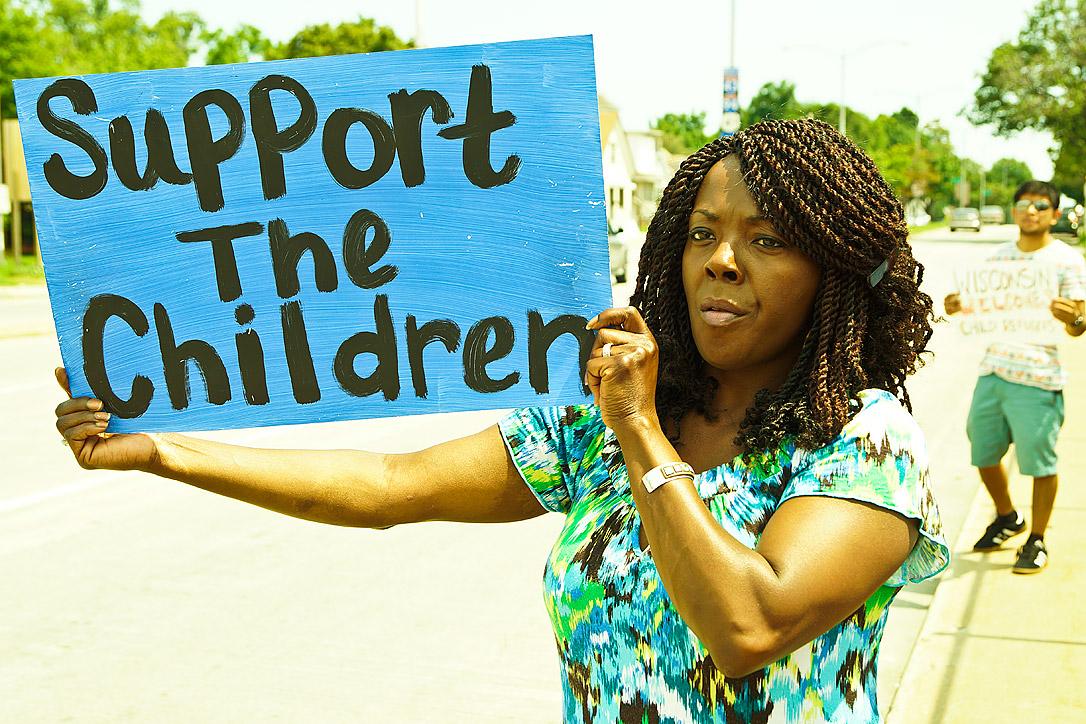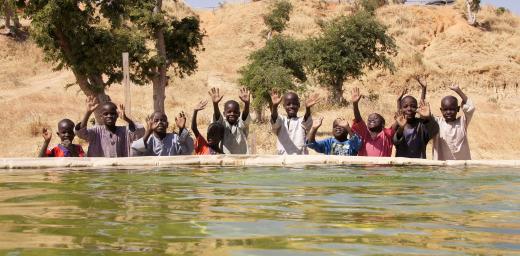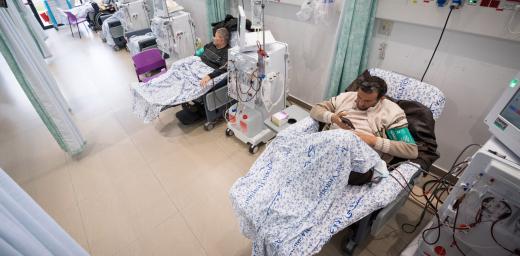Mass Deportation of Migrant Children to Central America

Rally in Wisconsin against deportation of children, July 2014. Photo: Light Brigading (via Flickr, CC-BY-NC)
LWF Member Churches Criticize Action by the U.S. Administration
(LWI) – The Lutheran World Federation (LWF) member church, the Evangelical Lutheran Church in America, has criticized plans by the United States Administration to expand the detention of families with children from Central America and to expedite deportations for thousands of unaccompanied migrant children and return them to their home countries without due process protections.
The U.S. government said that border patrols have caught 57,000 unaccompanied minors—some of them as young as four years of age—crossing into the U.S. since October 2013, up from 28,000 in the previous fiscal year. Three quarters of the children are from the three Central American countries—Honduras, Guatemala and El Salvador, with the remainder from Mexico.
More than 16,000 children from Honduras have been apprehended at the U.S.-Mexico border since October. 14, 000 children from Guatemala and 13,000 from El Salvador were also caught by border patrols. An estimated 5,000 of those Honduran children have been deported, or are in the process of being deported, by U.S. immigration authorities. In addition, several flights have already brought dozens of mothers and children back from the U.S. to Guatemala, and children have been returned in groups to El Salvador.
LWF Council member and Executive Director for the Evangelical Lutheran Church in America (ELCA) Global Mission Rev. Rafael Malpica Padilla said the children arriving in the U.S. are leaving their home countries to seek protection from drug and sex trafficking, hunger and poverty and other risk factors rendering children vulnerable.
The social, economic, environmental, and political conditions in Central America make it one of the most vulnerable regions globally. The murder rates in Honduras, El Salvador and Guatemala are among the highest in the world, with Honduras having the world’s worst outside a war zone, as street gangs have become increasingly linked to drug traffickers moving cocaine from the Andes region to America. Estimates indicate that 70 percent of Hondurans are unable to earn an income necessary to meet their basic needs.
“For years our companion churches in Central America have been struggling with the problem of growing violence in their societies that has its roots in poverty and inequality. My appeal to United States decision-makers is to respond to this humanitarian crisis in a comprehensive way," said Malpica Padilla.
"Our response must address both the immediate needs of newly arrived migrants here in the United States, as well as critically review our economic and security policies toward the Central American region and consider different approaches than we have in the past." he added.
“We have to remember first of all that these are children, and look at them through child welfare lenses rather than enforcement lenses,” commented Ralston Deffenbaugh, LWF Assistant General Secretary for International Affairs and Human Rights. “What’s in the best interests of the child? It’s a measure of how violent and unsafe the situation is in Central America that desperate parents would risk their children’s lives by sending them off on a dangerous and uncertain journey of migration. No parent makes such a decision without good reason. Countries of refuge, such as the United States, have a moral and legal obligation to protect these children. And a crucial part of that obligation is to be sure not to return the children to exactly the same situations where their lives were in danger in the first place.”
Through Lutheran Disaster Response, ELCA members are working with Lutheran church companions and strategic allies, such as the Baltimore-based Lutheran Immigration and Refugee Services, to respond to the needs of unaccompanied and migrant children.
“We are working with Lutherans and local communities to reunite thousands of children with family living in the U.S. and to care for children without family in loving homes,” said Lutheran Immigration and Refugee Service President and CEO Linda Hartke.
“What is at stake—we believe—in addition to the lives and dignity of individual women and children and families, is the threat of a significant shift in protections for all people who flee violence around the world. We cannot accept any response by the U.S. administration that seeks to forcibly and indiscriminately return these children, who have made perilous and courageous journeys, back to a life-threatening situation.”
The LWF has an active World Service program in the region and a history of close accompaniment of the churches and people of Central America. At the LWF Council, meeting in Bogota, Colombia in June 2012, the Council called upon “the governments of Honduras, Guatemala, and El Salvador to hear the cries of their people, to respect and protect human rights, to enforce the laws of the land, and to put an end to impunity by bringing to justice those who commit acts of violence.”
The Council also urged “the strengthening of programs for the security and safety of women, girls, boys, and youth,” including access to education, employment, and the opportunities for a dignified life.
Bishop Medardo Gomez of The Lutheran Church in El Salvador said it is “the mission of the churches in the region to respond to the crisis by providing pastoral care to the unaccompanied children who return to their counties.”
“The unaccompanied children that migrate are in search of life. The El Salvadoran Lutheran Church collaborates in emergency aid through long-standing pastoral support,” he said. “We are blessed that most of the churches in the region are organized to offer pastoral support through networks built with ecumenical organizations and civil society. It is my hope that governments will participate in the response to the crisis as well.”





